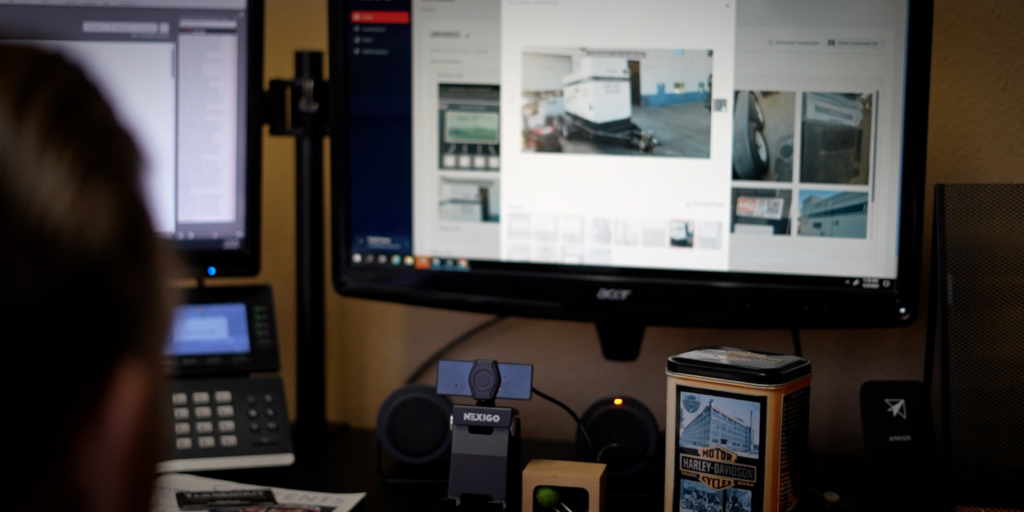Inspections are a critical part of equipment rental- helping ensure the efficiency and safety of your operation. These mistakes cause various potential issues and are easily avoided with the right tools.

- Failure to follow a consistent inspection process
Making it up as you go along is not the best practice in an equipment rental business- especially when it comes to the standards of your inspections. Without clear guidelines and consistency, there is no way of knowing if things have been missed.
- Not properly documenting details before and after a hire
Comprehensive documentation is a crucial aspect of effective equipment inspection. One of the most common mistakes people make is forgetting to keep (or choosing not to) a detailed account of each inspection and its outcome. A lack of documentation can lead to disputes, confusion, and reduced customer satisfaction- not to mention the potential for things to slip through the cracks.
- Inadequate staff training
Quality inspectors conduct quality inspections. You wouldn’t want someone operating one of your vehicles without the proper training. Don’t let someone inspect without the necessary preparations. A lack of staff training can lead to a slip in quality standards and expose your company.
- Lack of safety precautions
Working with heavy equipment can be dangerous- even if you are only inspecting it. Failure to follow compliance requirements and pay attention to potential safety hazards can lead to serious consequences. Even a lack of organization at workstations can hinder safety efforts.
- Inaction following inspections
If you don’t take corrective actions when issues arise, you delay bigger problems. Once you have identified issues, there must be a feedback loop and a proactive approach to continuous improvement.
- Failing to use the right equipment
Ensuring accurate results should be a priority, and that is hard to do if you don’t use the right inspection equipment. People sometimes fail to check that products meet the requirements and are doing their job properly.
- Poorly timed inspections
When things get busy, it can be difficult to arrange a prompt inspection. Timing inspections matters, and doing them too early or too late can cause major problems.
- Brushing over the small things
Minor defects cause major problems, but they are often overlooked. It is vital to pay attention to details. Too often, people miss things because they don’t take a good enough look.
- Underestimating the importance of an official inspection
Laid back, unofficial investigations rarely have the same effectiveness as something official. Other factors can distract people, and it can feel less serious than it should.
- Ignoring the potential of modern software
Businesses that don’t use modern technology to better their practices put themselves at a disadvantage. The right software can provide insights, reduce errors, and enhance performance- helping companies make an informed decision about every inspection.
Record360: Quality Control, Process Improvement, and Proactive Inspection Solutions for the Equipment Rental Industry

Record360 drastically reduces the likelihood of errors in the inspection process by simplifying and streamlining the way things work. The mobile app lets you create a comprehensive inspection checklist- as well as highly detailed photo and video evidence of every rental vehicle.
Make inspections safer, more accurate, and easier to arrange, and protect your equipment rental business in the process because it leaves no room for ambiguity.
Learn more about what Record360 can do for you today!
